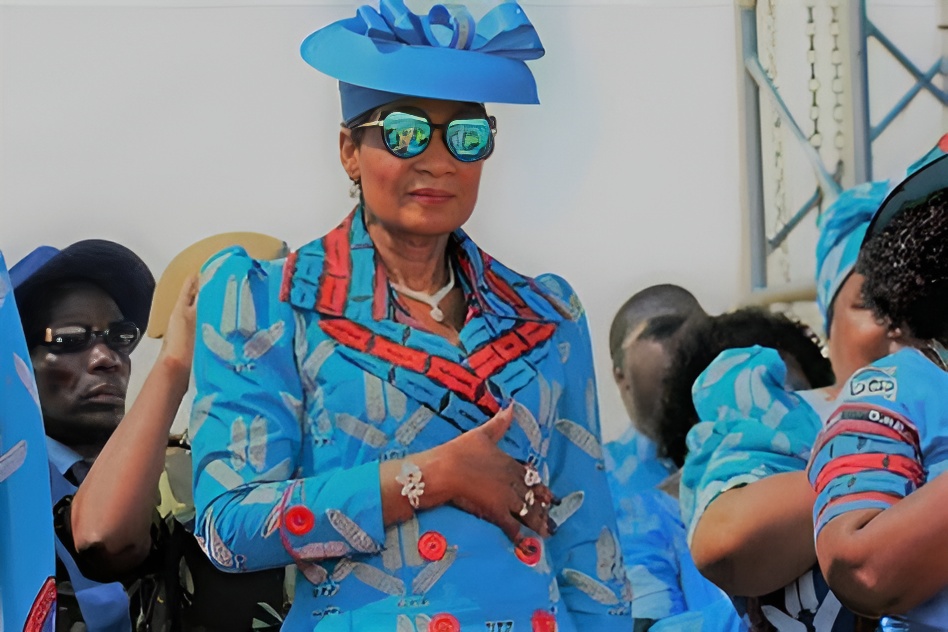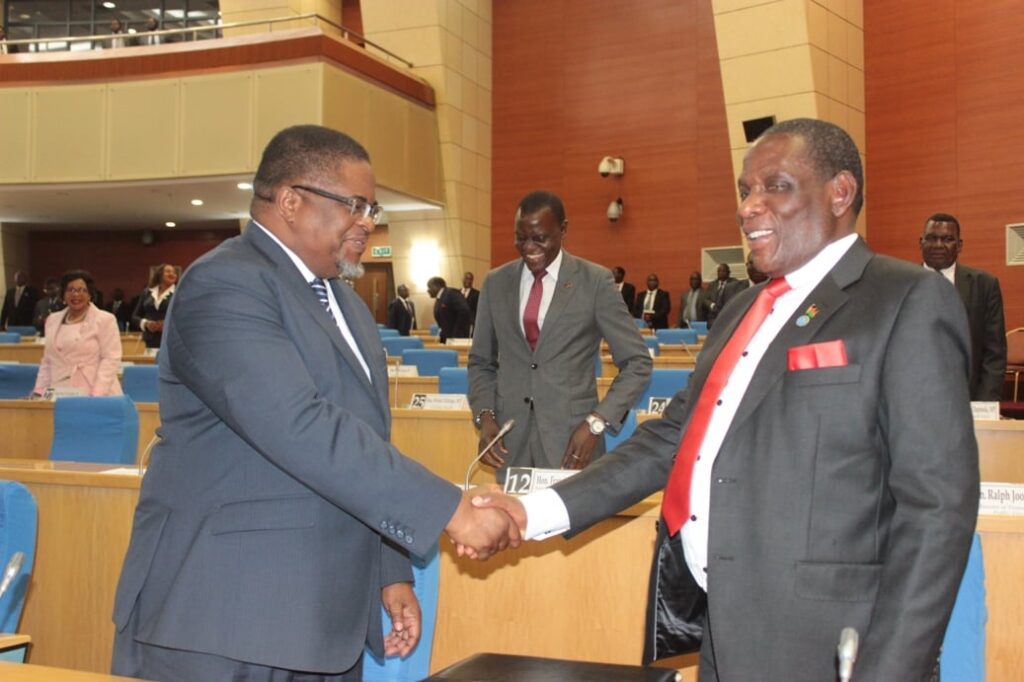The appointment of Dr. George Chaponda as acting President of the Democratic Progressive Party (DPP) has ignited a political firestorm that is threatening to tear apart Malawi’s largest opposition party.
With the sudden hospitalization of former president and DPP leader Arthur Peter Mutharika, what was once a cold war of factions within the party has erupted into open political warfare.
The DPP, already struggling with credibility issues and internal paralysis, now stands at a dangerous crossroads. And at the center of it all is Chaponda—a man whose political resurrection may prove to be either a masterstroke or a monumental miscalculation.
Dr. George Chaponda, a founding member of the DPP and long-time confidant of the Mutharikas, has always been lurking in the background of the party’s power matrix. With Mutharika reportedly incapacitated in a South African hospital and no formal candidate in sight, the party’s emergency meeting named Chaponda as acting President.
Insiders claim the move is meant to project calm and unity. But beneath the surface, it is everything chaotic. Chaponda may be the man wearing the crown, but make no mistake, this is a poisoned chalice. He is being propped up in the middle of a brutal factional battle that pits him against a powerful and increasingly hostile Ntcheu cabal.
This is now a battle for the soul of the DPP.

The Ntcheu-based faction includes influential figures like former First Lady Gertrude Mutharika, Central Region Governor Alfred Gangata, DPP spokesperson Shadreck Namalomba, and Secretary General Peter Mukhito. All led led by Pythius Hiwa (a.k.a. Norman Paulosi Chisale). These figures are reportedly incensed by Chaponda’s elevation.
According to multiple sources, the Ntcheu group preferred to maintain control behind a visibly weak Mutharika. They view Chaponda as a rogue actor, too independent, too unpredictable, and too old. More importantly, he is not part of their strategic circle of power.
Their opposition is not merely about personal dislike. It is about control, patronage, and the fear that Chaponda might dismantle the web of influence they have carefully built over the past few years.
But, now Chaponda is also a leader with baggage.
At 84 years old, Chaponda, commonly known as Mr. Kaloswe, is only three years younger than Mutharika. He is hardly a generational shift. Critics are quick to remind the public of his controversial past, particularly his entanglement in the 2017 “Maizegate” scandal when he was Minister of Agriculture. Though eventually cleared by the courts, the case severely damaged his public image.
Now his return as acting President has revived these old ghosts, and many are questioning whether the DPP is clinging to leaders from a bygone era rather than investing in a fresh, credible alternative.
Again, with Chaponda DPP is doomed to tribal politics.
Chaponda’s appointment has reignited accusations that the DPP is, at its core, a tribal and regional party. With another Lhomwe belt strongman taking over, the optics are hard to ignore. Why, critics ask, must every DPP leader come from the Lhomwe belt? Why has the party never managed to elevate a credible leader from the Central or Northern regions or even from Blantyre, Mwanza, Nsanje, Chikwawa or Machinga and Zomba?
This pattern fuels the perception that the DPP is one party that is more concerned with preserving regional power than building a truly national political movement.

Further, Chaponda’s elevation signals that youth and capability is ignored. One may ask a simple but important question: Where Is Bright Msaka?
The appointment of Chaponda has raised eyebrows not just for what it represents, but for who it excludes. One name repeatedly mentioned by insiders and analysts alike is Bright Msaka. Younger, articulate, and untainted by scandal, Msaka represents a modern face of the DPP. So why is he being sidelined?
The answer, according to some senior party members, is simple: he lacks tribal and regional allegiance to the Lhomwe elite. Msaka’s appeal to a broader national constituency is precisely why he is seen as a threat to the entrenched powerbrokers.
Another name gaining traction behind the scenes is Joseph Mwanamvekha. Once considered a potential successor to Mutharika, Mwanamvekha has been conspicuously absent from the public arena in recent months. But insiders reveal that he is deeply unhappy with the party’s direction and sees the current crisis as a potential opening.
Unlike Chaponda, Mwanamvekha offers a blend of economic expertise and political pragmatism. And unlike the Ntcheu cabal, he is not seen as polarizing. Could he be the DPP’s dark horse?
With Mutharika effectively ruled out, the party has defaulted to Chaponda. But rather than uniting the party, his appointment has deepened the fractures. The Ntcheu faction’s clear disapproval signals that this fight is far from over. What we are seeing is not just a leadership transition but an all-out political implosion.
Chaponda is either the DPP’s last-ditch effort to stay afloat or the final nail in its coffin. Propped up by one faction and rejected by another, his leadership is built on a crumbling foundation. The party has chosen the path of least resistance—a familiar face, a tribal loyalist, and a short-term solution.
What remains to be seen is whether the DPP can survive its own dysfunction. Because if it continues down this path, September may not just mark the end of a campaign. It may mark the end of the DPP as a serious political force in Malawi.
The implosion has begun. The war is open. And George Chaponda, whether he knows it or not, is now both the battlefield and the prize.
Last important question: What does this mean for the 2025 election? Is the DPP still in the race? Should it be counted as a strong contender?
The DPP is no longer hiding its internal warfare. It is now open, brutal, and threatening to derail its chances in the September 2025 election. Without a unifying figure, without a clear plan, and with factions openly undermining each other, the DPP risks becoming politically irrelevant.
Time is not on the DPP’s side. The general election is less than 100 days away. Voters are watching. And so far, what they see is a party lost in chaos, unable to speak with one voice, and seemingly more interested in internal battles than offering a credible alternative to the ruling party.
Chaponda may be the acting President, but can he campaign across the country at 84 years old? Can he shake off the Maizegate baggage? Can he inspire young voters? Can he present a vision that goes beyond tribal affiliations and regional calculations?
The honest answer: probably not.








